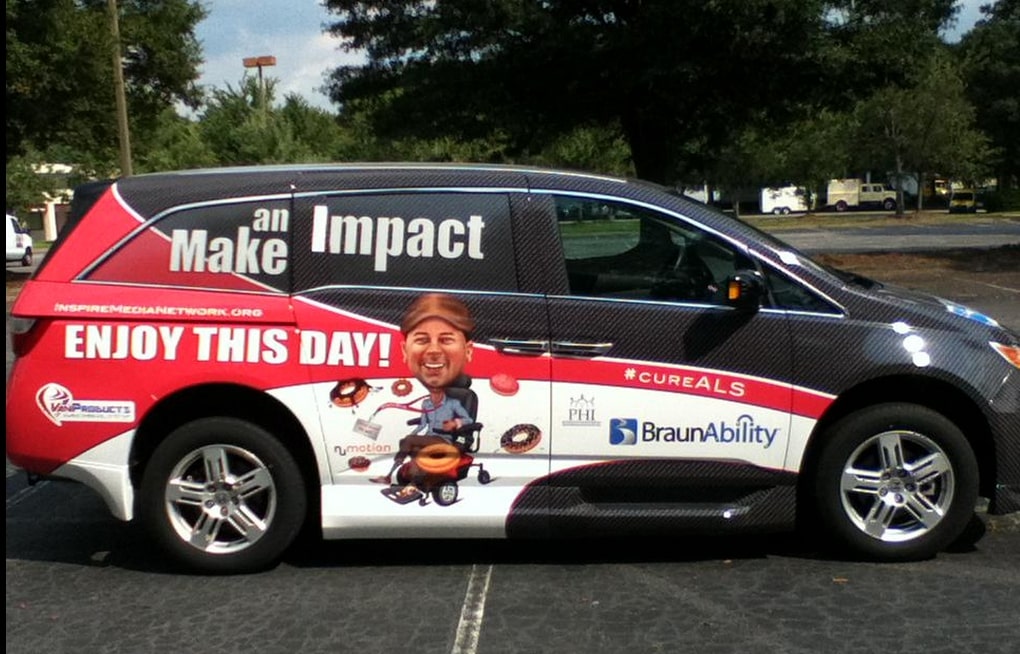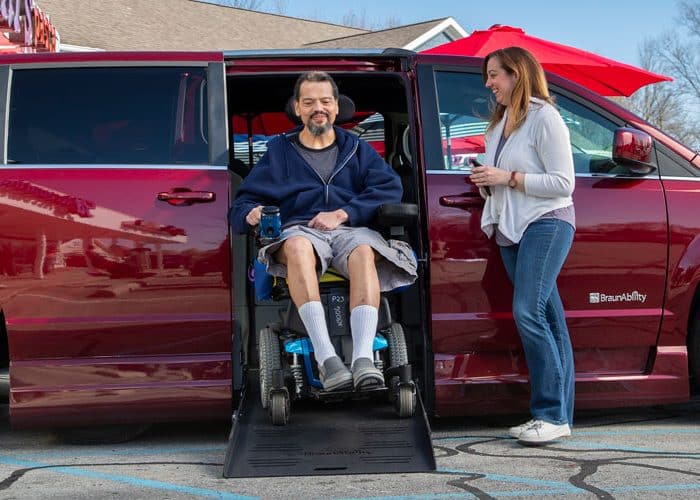I have ALS, known as Lou Gehrig’s Disease, and I refuse to live in fear.
These are the words of Chris Rosati, father, husband, and founder of Inspire MEdia. In 2010, at the age of 39, Rosati was diagnosed with the degenerative nerve disease, amyotrophic lateral sclerosis, better known as ALS or Lou Gehrig’s Disease. According the News & Observer [http://www.newsobserver.com/news/local/article10039154.html], his wife was 5 months pregnant at the time, and his first daughter was 5 years old.
Now, he will be sitting down with us as we host a Q&A session with Rosati to talk about his struggles and triumphs with ALS. We are welcoming and encouraging folks to submit their questions now through March 13th.
14 Facts About ALS
There are many misconceptions about ALS, and like Rosati, those who live with ALS have been working tirelessly to raise more awareness about the disease as well as raise funding in the hopes of one day finding a cure.
According to the ALS Association, the following are some facts about ALS that everyone should know.
- ALS is not contagious.
- It is estimated that ALS is responsible for nearly two deaths per hundred thousand population annually.
- Approximately 5,600 people in the U.S. are diagnosed with ALS each year.
- The incidence of ALS is two per 100,000 people, and it is estimated that as many as 30,000 Americans may have the disease at any given time.
- Although the life expectancy of an ALS patient averages about two to five years from the time of diagnosis, this disease is variable and many people live with quality for five years and more.
- More than half of all patients live more than three years after diagnosis.
- About twenty percent of people with ALS live five years or more and up to ten percent will survive more than ten years and five percent will live 20 years.
- There are people in whom ALS has stopped progressing and a small number of people in whom the symptoms of ALS reversed.
- ALS occurs throughout the world with no racial, ethnic or socioeconomic boundaries.
- ALS can strike anyone.
- The onset of ALS is insidious with muscle weakness or stiffness as early symptoms. Progression of weakness, wasting and paralysis of the muscles of the limbs and trunk as well as those that control vital functions such as speech, swallowing and later breathing generally follows.
- There can be significant costs for medical care, equipment and home health caregiving later in the disease. It is important to be knowledgeable about your health plan coverage and other programs for which your may be eligible, including SSA, Medicare, Medical and Veteran Affairs benefits.
- Riluzole, the first treatment to alter the course of ALS, was approved by the FDA in late 1995. This antiglutamate drug was shown scientifically to prolong the life of persons with ALS by at least a few months.
- More recent studies suggest Riluzole slows the progress of ALS, allowing the patient more time in the higher functioning states when their function is less affected by ALS.
Chris Rosati: Making a Difference in the Triangle Community and the Nation
When you are diagnosed with a disease, some people tend to retreat into themselves. Not Rosati. Since his diagnosis, Rosati quit his job as a marketer and started his own company, Inspire MEdia, in which he hopes to inspire others to perform acts of kindness. These acts of kindness are then filmed and shared with others.
Since jumpstarting his own company with his own act of kindness (partnering with Krispy Kreme to give away 1,000 doughnuts to people at a local hospital and school), Rosati has been featured on CBS. Rosati was also featured on WRAL, as well as other local and national media. We hope you’ll take the time to learn more about his wonderful story, and we also hope you’ll join us in the Van Products Q&A event with Chris Rosati next week!
You can follow Chris on Twitter, or you can become a fan of InspireMedia on Facebook.
You’d be amazed at how wonderful life can be when you worry less. – Chris Rosati






Leave A Reply